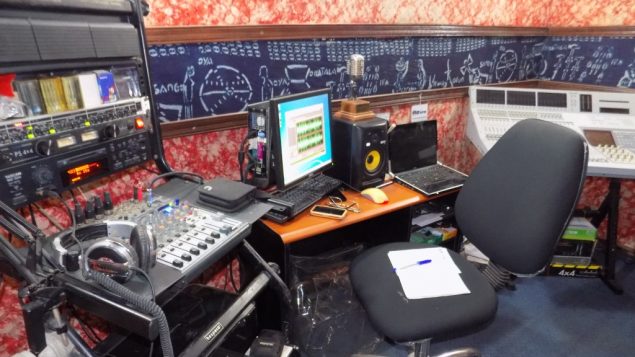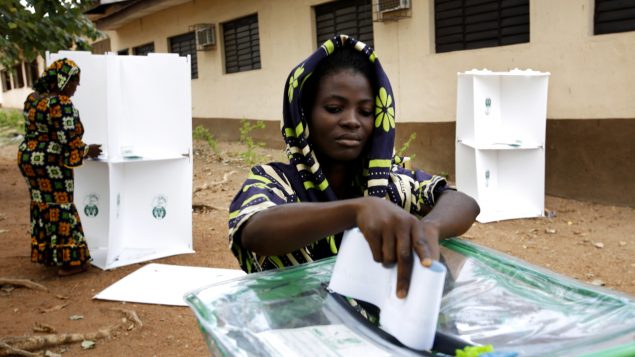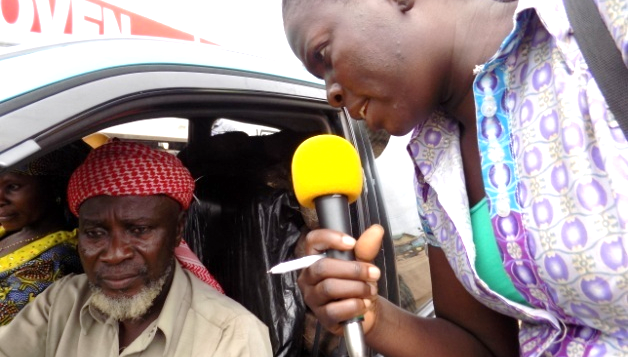You’ve probably never heard of Capital 97.5 FM Radio unless, of course, you happen to live in Abeokuta, Nigeria.
It doesn’t have famous DJs or outrageous radio personalities – no Howard Sterns there.
But it’s a small community station with a clear sense of what it wants to be: the voice of small business owners.
“Our focus is basically micro, small and medium enterprises,” says Willy Thomas, CEO and managing editor of Capital 97.5 Radio. “Our mandate is to provide support for micro, small and medium businesses because that’s the engine that is driving the economy. We have a commitment to ensure that they grow and develop.”
(click to listen to the interview with Willy Thomas)
ListenA platform for community

Capital 97.5 FM production studio in Abeokuta, Nigeria. (Remi Toviho/AFRINET)
Abeokuta is the capital of Ogun State, about an hour’s drive from Nigeria’s financial capital of Lagos.
“Ogun State is actually considered the New Jersey, what New Jersey is to New York, Ogun State is to Lagos,” says Thomas, a veteran broadcast journalist.
Thomas says the station provides these entrepreneurs with the kind of information they need to grow and enhance their business.
It could be something as simple as providing a platform for traders to report to authorities and to other traders illegal shake-ups by corrupt security officers at checkpoints that dot the state’s roads.
“We give them a platform to report trade route misdemeanours, so when you’re stopped by a policeman and he’s asking you all sorts of things and he wants you to pay a bribe or whatever, you have the platform to report immediately,” Thomas says.
Taking control of electoral process

A Nigerian woman casts her vote at a polling station in Abeokuta, 80 kilometers (50 miles) north of the main city of Lagos, April 21, 2007. (Finbarr O’Reilly/REUTERS)
The station also develops content for communities, artisans and farmers providing them advocacy platforms to speak about their challenges and problems, Thomas says.
“We’ve identified that part of the big problem we have is that those in power, those in authority, the politicians, think they know what the problems of the people are, but they don’t,” Thomas says. “They are only looking at things from their own agenda. Our job is to give the people a platform, give them the microphone.”
For example, Thomas says recently state authorities built a road in a rural area and were hoping to open it with big fanfare, except the villagers for whom this road was ostensibly built didn’t show up for the festive occasion.
“They said roads are not our priority, we need grazing land for our cattle, that’s our business, so roads mean nothing to us,” Thomas says. “That’s how people in power get the priorities wrong.”
But the station’s goals go further than just advocating for small business owners, says Thomas.
“What we’re hoping to achieve now is to empower the people so that they can take over the electoral process. That is our goal,” Thomas says. “We’re saying to them, ‘You own the process, it’s all about you, these are just servants you have engaged, voted into power to serve you.’”







For reasons beyond our control, and for an undetermined period of time, our comment section is now closed. However, our social networks remain open to your contributions.